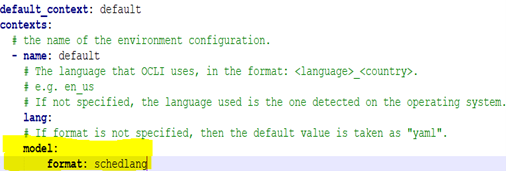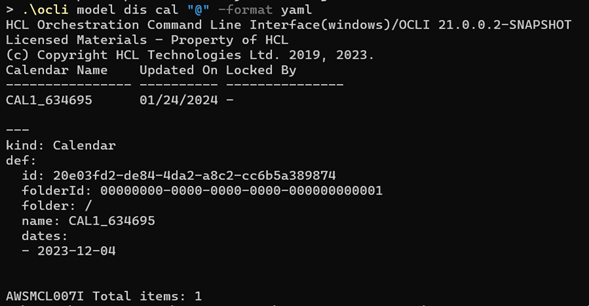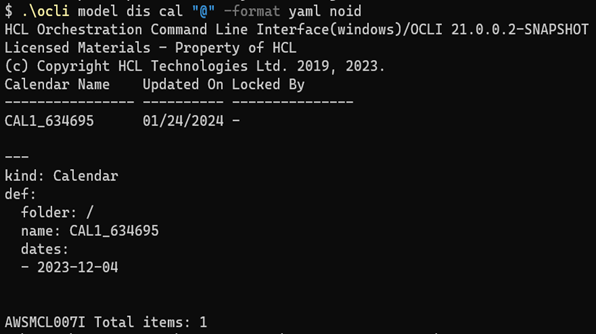|
Unlocking operational efficiency is paramount for organizations, and HCL Universal Orchestrator stands as a powerful ally in achieving this goal. With its versatile workflow modeling capabilities, HCL Universal Orchestrator empowers users to streamline their operations seamlessly. Amidst our comprehensive modeling capabilities lies a pivotal component known as "”items” essential elements within intricate workflows. Previously, creating these items necessitated navigating complex syntax in native languages, like the Scheduling Language. Users have now the option of using an alternative, more intuitive way of creating their workload. They can now seamlessly create and oversee various items such as jobs, job streams, calendars and more. Through an user-friendly interface, they can allocate time and resources more efficiently towards their core business goals. For example, consider this simple job definition in Scheduling Language below: - $jobs /WS_AGT_0#/Job_Definition_1 DESCRIPTION "Sample jsdl Job Definition" TASK { "executable" : { "interactive" : false, "script" : "ls", "credential" : { } } } RECOVERY STOP In the above example, it is not clear what is the job definition name or what is the name of the workstation folder inside which the job is created. Here comes JSON/YAML support to the rescue. Users can now interact with Orchestration CLI in three different formats – Scheduling Language, Json and Yaml. For example, consider the job definition we used previously, but in Json format: - { "kind" : "JobDefinition", "def" : { "workstation" : "/WS_AGT_0", "folder" : "/", "name" : " Job_Definition_1", "description" : "Sample jsdl Job Definition", "type" : "executable", "task" : { "executable" : { "interactive" : "false", "script" : "ls", "credential" : { } } }, "recovery" : { "action" : "STOP" } } } The above job definition in Json format is far readable and standardized. Users can easily understand the name of the job definition, workstation, or folder. Moreover, users can save an item in any format and extract it into a file in any other format. This gives users the flexibility to interact with the Orchestration CLI. You might be wondering how the Orchestration CLI correctly reads the format of the file. Does a User also need to send additional information about the file format? The answer is not always. Let’s understand why. For processing requests When saving or modifying items by sending a file, the user does not need to send additional information about the file format. The Orchestration CLI reads the file format by reading the file content. The commands that can be used to send a file are – add, new and replace. For receiving outputs When receiving an output from the Orchestration CLI, the user has to specify the format in which they want the output. The following are the keywords users must specify to receive an output in their preferred format: -
ocli model display folder @ -format=json Different Ways to Configure the Format There are three ways to configure the -format parameter: -
(OR) I.Use the following Orchestration CL command to set the value for the “format”.
A new display command option: “noid” In Schedlang, all IDs are by default hidden from users when using the display, extract, and modify commands. But in json and yaml, we can show or hide the IDs in the display command using the “noid” keyword. However, in the extract & modify commands, the IDs are by hidden by default. The following figure illustrates the display command showing all the IDs. We now have a “noid” option and a display command that hides all the “ids”, as seen below. With the above demonstration, you can embark on a journey of enhanced efficiency and streamlined operations with HCL Universal Orchestrator. Experience how the seamless integration of JSON and YAML support transforms workflow management, simplifying complexities and empowering your business for unparalleled productivity. Join us and revolutionize the way you orchestrate success.
0 Comments
Your comment will be posted after it is approved.
Leave a Reply. |
Archives
July 2024
Categories
All
|






 RSS Feed
RSS Feed